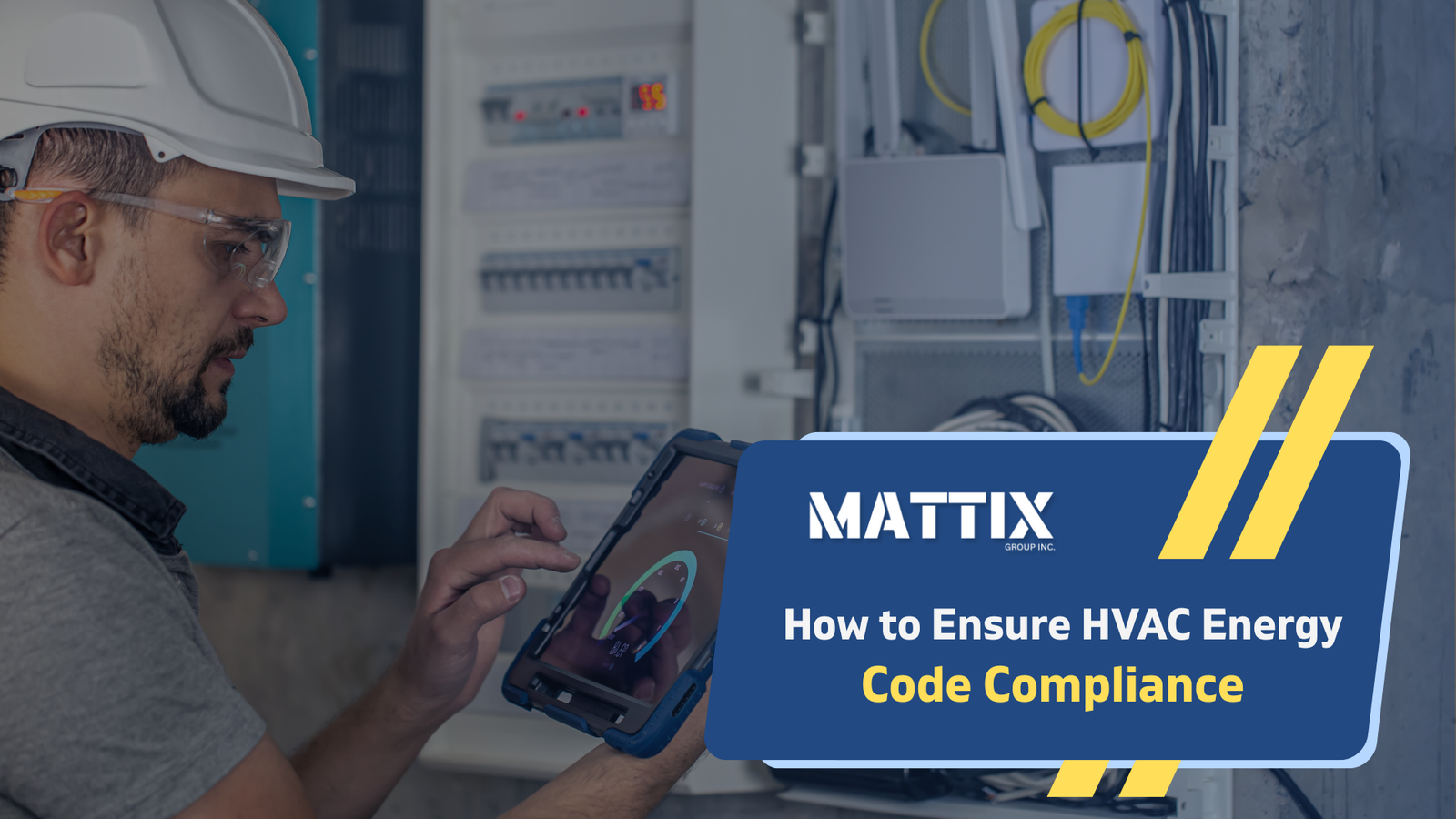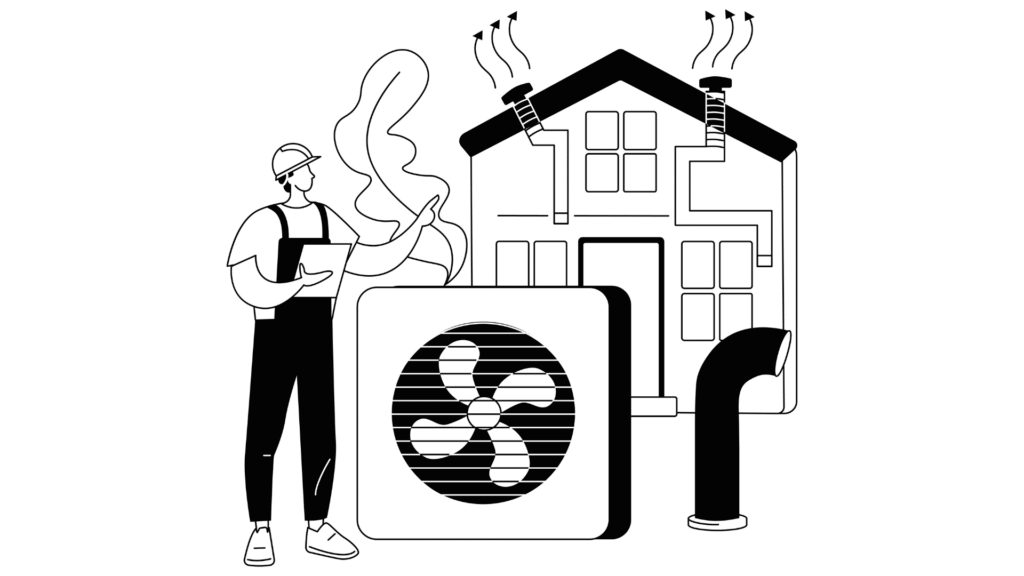
In today’s world, energy efficiency is not just a good idea—it’s a necessity. Rising utility costs, stricter regulations, and growing environmental concerns have made it essential for both businesses and homeowners to focus on HVAC energy compliance. If your system is not optimized for efficiency or if it doesn’t meet ASHRAE compliance standards, you could be facing higher operating costs, penalties, or even reduced indoor comfort.

Fortunately, achieving compliance is not as complicated as it may seem. With the right steps, you can reduce energy usage, stay compliant with HVAC energy codes, and create a comfortable, sustainable environment for everyone in your building.
What Exactly Are HVAC Energy Codes?
Before we dive deeper, it’s important to understand what HVAC energy codes actually are. Simply put, they are rules and regulations created to control energy consumption in heating, ventilation, and air conditioning systems. These codes ensure that systems are designed and operated in a way that saves energy, reduces emissions, and improves overall building performance.
Some of the most widely used codes and standards include:
- ASHRAE Standards (such as ASHRAE 90.1, 62.1, and 189.1)
- EPA Energy Star guidelines
- International Energy Conservation Code (IECC)
- Local building energy codes
In other words, these codes act as a roadmap to ensure your HVAC system isn’t wasting energy and is performing at the level required by law.
Why Is ASHRAE Compliance So Important?
Now that you know what energy codes are, let’s talk about ASHRAE compliance. ASHRAE (the American Society of Heating, Refrigerating, and Air-Conditioning Engineers) is a global authority in setting standards for HVAC systems.
By following ASHRAE standards, you’re not only complying with energy efficiency laws but also ensuring:
- Better indoor air quality (ASHRAE 62.1)
- Lower operating costs through improved efficiency (ASHRAE 90.1)
- Sustainable building practices (ASHRAE 189.1)
- Consistent comfort levels across different zones in your building
In addition, ASHRAE standards are frequently updated, which means staying compliant also helps you future-proof your building against upcoming energy regulations.
Practical Steps to Achieve Energy Compliance For HVAC
Transitioning to an energy-compliant HVAC setup does not happen overnight, but step by step, you can make meaningful changes. Let’s explore the most effective strategies:
1. Schedule an Energy Audit First
To begin with, an HVAC energy audit is the best way to understand where your system currently stands. This process highlights inefficiencies such as leaky ducts, outdated equipment, or improper insulation. Moreover, it gives you a clear picture of what upgrades or changes are necessary for compliance.
2. Upgrade to Energy-Efficient HVAC Systems
If your system is more than 10–15 years old, chances are it’s consuming far more energy than it should. Replacing it with Energy Star-rated equipment ensures better performance and ASHRAE 90.1 compliance. For example, newer units with higher SEER (Seasonal Energy Efficiency Ratio) ratings can drastically cut energy consumption.
3. Leverage Smart Thermostats and Automation
In addition to efficient equipment, smart controls make a huge difference. Automated thermostats, zoning systems, and building automation tools can adjust heating and cooling based on occupancy, weather, and time of day. As a result, you avoid unnecessary energy waste and stay within HVAC code requirements.
4. Maintain Proper Airflow and Ventilation
It’s easy to overlook, but ventilation compliance is a critical part of both energy efficiency and occupant health. According to ASHRAE 62.1, buildings must provide adequate fresh air while minimizing energy loss. Therefore, cleaning filters, sealing ducts, and balancing airflow all contribute to compliance.
5. Schedule Regular Preventive Maintenance
On the other hand, even the best HVAC equipment won’t remain compliant if it’s neglected. Routine maintenance—such as coil cleaning, refrigerant checks, and calibration of controls—ensures ongoing efficiency. Moreover, preventive care reduces the chances of breakdowns, which saves both energy and repair costs.
6. Integrate Renewable Energy Solutions HVAC
Another effective way to boost compliance is by integrating renewable energy sources. For instance, pairing your HVAC system with solar panels not only reduces your reliance on the grid but may also help your building qualify for green certifications like LEED.
7. Stay Updated on Changing Codes and Regulations
Finally, compliance is not a one-time task. Since HVAC energy codes and ASHRAE standards are regularly updated, staying informed is essential. Partnering with a trusted HVAC provider ensures that your system continues to meet the latest requirements without disruption.
Frequently Asked Questions
Q1: What are HVAC energy codes, and why do they matter?
HVAC energy codes are legal standards that ensure your heating and cooling systems operate efficiently. They matter because they help lower utility bills, reduce environmental impact, and keep you in line with local laws.
Q2: What does ASHRAE compliance mean?
ASHRAE compliance means your HVAC setup follows the efficiency, ventilation, and performance standards set by ASHRAE. This guarantees both energy savings and healthy indoor air quality.
Q3: How can I tell if my system is compliant?
The best way is to schedule an energy audit with a professional HVAC company. They can evaluate whether your system meets ASHRAE 90.1, 62.1, and other energy code requirements.
Q4: Can preventive maintenance help with compliance?
Yes, absolutely. Regular maintenance ensures your system stays efficient and compliant over time. It also prevents costly breakdowns and unnecessary energy waste.
Why Choose Mattix Group for Energy Compliance?
At the end of the day, achieving energy compliance is about more than just saving money—it’s about building a sustainable future. At Mattix Group, we specialize in helping businesses and property owners align their systems with HVAC energy codes and ASHRAE compliance standards.
Whether you need a detailed energy audit, a system upgrade, or ongoing maintenance, we provide expert solutions that keep your HVAC system efficient, reliable, and fully compliant.
Contact Mattix Group today and take the first step toward energy-efficient comfort and peace of mind.

